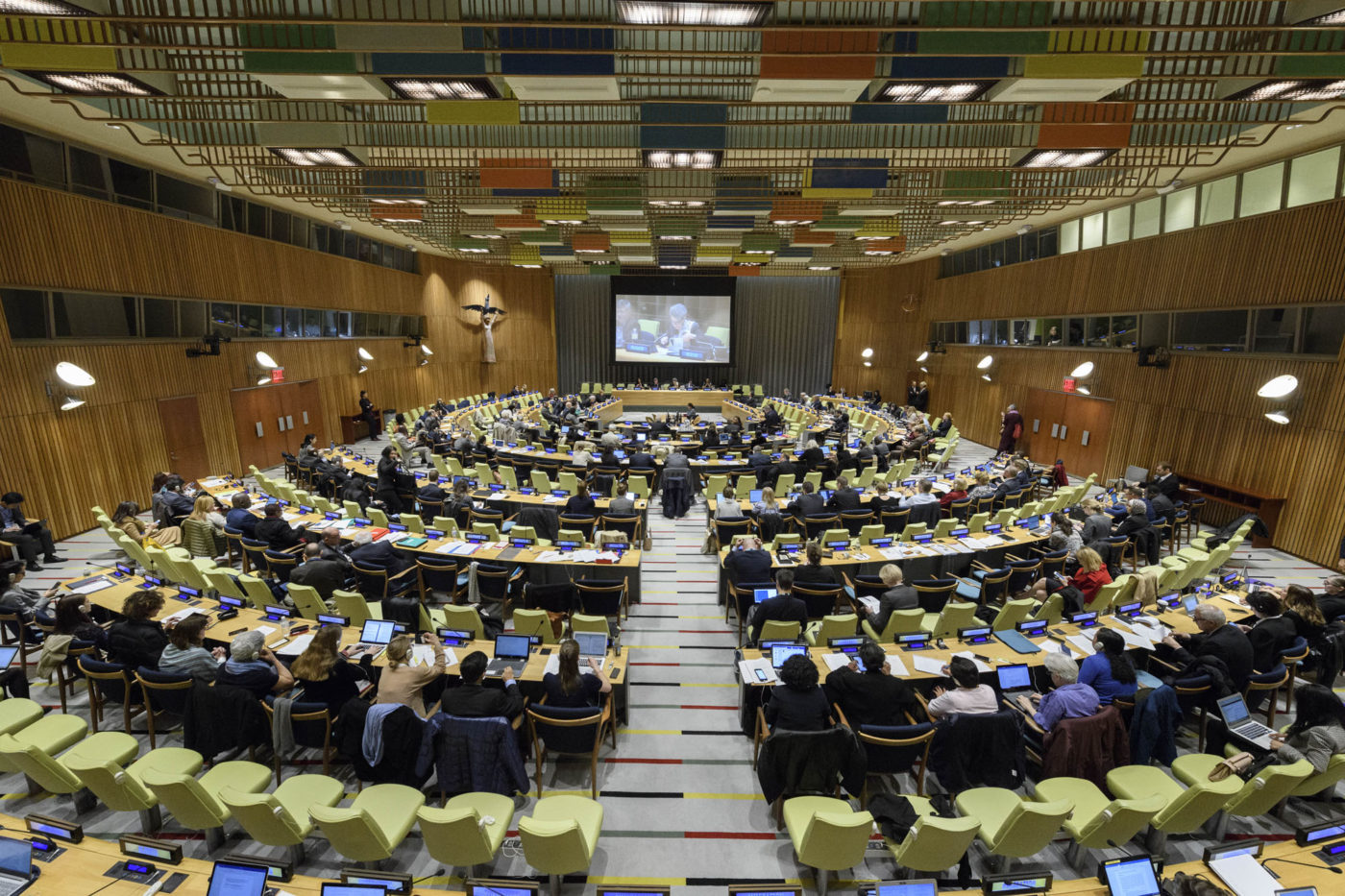The Members of World Leadership Alliance – Club de Madrid (WLA – CdM), former Presidents and Prime Ministers who came to office through a democratic process, welcome the completion of the negotiations of the Global Compact for Safe, Orderly and Regular Migration and congratulate the co-facilitators, H.E Juan José Gómez Camacho, Permanent Representative of Mexico and H.E. Jürg Lauber, Permanent Representative of Switzerland who guided the process, and all the Member States that contributed to.
This is an important document because it provides a clear and agreed framework for managing the issues related to migration, both regular and irregular. The Member States recognise that “safe, orderly and regular migration works for all when it takes place in a well-informed, planned and consensual manner” and therefore “We commit to facilitate and ensure safe, orderly and regular migration for the benefit of all (Paragraph 13).
If the twenty-three Commitments are met, it will go a long way to providing clarity for all interested parties. It does not put new burdens on any state. Rather, by working together and sharing the burden it will ensure that migration can be managed for the benefit of all concerned.
We therefore call on any states that are wavering in their support for the Compact to now give it their wholehearted support, and we remind any state that has stood aside from the process that it is not too late to join and contribute to creating the new stable and sustainable policies and procedures within the framework of the Compact.
Beyond the Global Compact
The compact does not address all the issues and challenges related to migration for countries of origin, transit or destination, or for migrant communities and communities upon which they impact. Not could it be expected to do so. The Member States are “fully aware that the Global Compact for Safe, Orderly and Regular Migration is a milestone, but not the end to our efforts.” It does provide clarity and certainty and on that platform, the other challenges can be addressed.
Those challenges include the related issues of (i) negative perceptions and misperceptions of migration, especially in receiving countries, and (ii) the attitudes and relationships between migrants and other communities in the same area. The Members of Club de Madrid feel that they can make a particular contribution to these issues especially through their Shared Societies Project, which has been working for ten years to address inter-group tensions of every kind. Since its inception, it has highlighted good practice and warned about the dangers of escalating tensions by ignoring the concerns that exist, whether real or misconceived.
A core element of the Shared Societies Approach is the involvement of all stakeholders, listening to their concerns and including them in plans to address sources of tensions and create societies that work for everyone.
In relation to implementation, the member states agree:
We will implement the Global Compact in cooperation and partnership with migrants, civil society, migrant and diaspora organizations, faith-based organizations, local authorities and communities, the private sector, trade unions, parliamentarians, National Human Rights Institutions, the International Red Cross and Red Crescent Movement, academia, the media and other relevant stakeholders (Paragraph 44).
The Compact rightly calls for the involvement of many interests, but does not directly indicate the need to involve those hostile to migrants and migration in order to reach sustainable solutions. This is vital and feasible as is shown by good practice around the world.
 Negotiations over the Global Compact for Safe, Orderly and Regular Migration were finalized on 13 July. The document will be formally adopted in Marrakech, Morocco, in December.
Negotiations over the Global Compact for Safe, Orderly and Regular Migration were finalized on 13 July. The document will be formally adopted in Marrakech, Morocco, in December.
This starts in the country of origin. The Compact calls for action to minimize the adverse drivers and structural factors that compel people to leave their country of origin (OBJECTIVE 2) and also a comprehensive and integrated approach, within and between countries (OBJECTIVE 23), and under that objective, it calls on member states to:
Increase international and regional cooperation to accelerate the implementation of the 2030 Agenda for Sustainable Development in geographic areas from where irregular migration systematically originates due to consistent impacts of poverty, unemployment, climate change and disasters, inequality, corruption, poor governance, among other structural factors, through appropriate cooperation frameworks, innovative partnerships and the involvement of all relevant stakeholders, while upholding national ownership and shared responsibility (emphasis added).
Involvement of all stakeholders is also important in countries of transit and it is appropriate that the Compact confirmed that that the provision of assistance of an exclusively humanitarian nature for migrants, often provided by local civil society organisations as a gesture of common humanity, is not considered unlawful (Objective 8, a).
Moreover, it is also a key issue in receiving countries where there are many concerns about migration and opposition, often among those who have had no direct contact with migrants but scapegoat them for all the disadvantages they experience. Therefore:
We commit to foster inclusive and cohesive societies by empowering migrants to become active members of society and promoting the reciprocal engagement of receiving communities and migrants in the exercise of their rights and obligations towards each other, including observance of national laws and respect for customs of the country of destination. We further commit to strengthen the welfare of all members of societies by minimizing disparities, avoiding polarization and increasing public confidence in policies and institutions related to migration, in line with the acknowledgment that fully integrated migrants are better positioned to contribute to prosperity. (OBJECTIVE 16.)
In addition, OBJECTIVE 17 commits to:
Promote an open and evidence-based public discourse on migration and migrants in partnership with all parts of society, that generates a more realistic, humane and constructive perception in this regard.
However, we caution that it is not just a question of informing those hostile to migration of the positive evidence about migration (assuming they can be reached) but it is also important that governments, local authorities and religious institutions, trade unions and other civil society organisations listen to the concerns of their people and address those concerns, and “strengthen the welfare of all members of societies”. Otherwise, those concerns remain and continue to be blamed on migrants. Therefore, it is right that Objective 17 goes on to say:
We also commit to protect freedom of expression in accordance with international law, recognizing that an open and free debate contributes to a comprehensive understanding of all aspects of migration.
In a recent book, sociologists Vera Messing and Bence Ságvária argue, on the basis of data from 20 European countries, that what shapes hostility is not the presence of migrants but the perceived absence of trust and cohesion. They note:
People are fearful in countries where people don’t trust each other or the state’s institutions, and where social cohesion and solidarity are weak.
This is our Members experience in the context of the Shared Societies Project; without addressing these deeper problems we are unlikely to change negative perceptions and attitude about migrants.
Those hostile to migrants place severe constraints on governments’ capacity and willingness to tackle the problems. By providing clarity and certainty, the Compact will make it easier to address those hostile and, if their underlying concerns can be resolved and they are less opposed to managing migration in ways, that in turn will free Governments to actively implement and strength the Global Compact. It creates a virtuous circle.
The Members of Club de Madrid therefore commend the efforts of the Member states, wish them well and offer support as they move forward to ensure safe orderly and regular migration allowing all people to improve their lives and meet their aspirations (OBJECTIVE 2).
SIGNATORIES
Alfred Gusenbauer, former Chancellor of Austria and member of the WLA-Club de Madrid
Mehdi Jomaa, former PM of Tunisia and member of the WLA-Club de Madrid


